Article
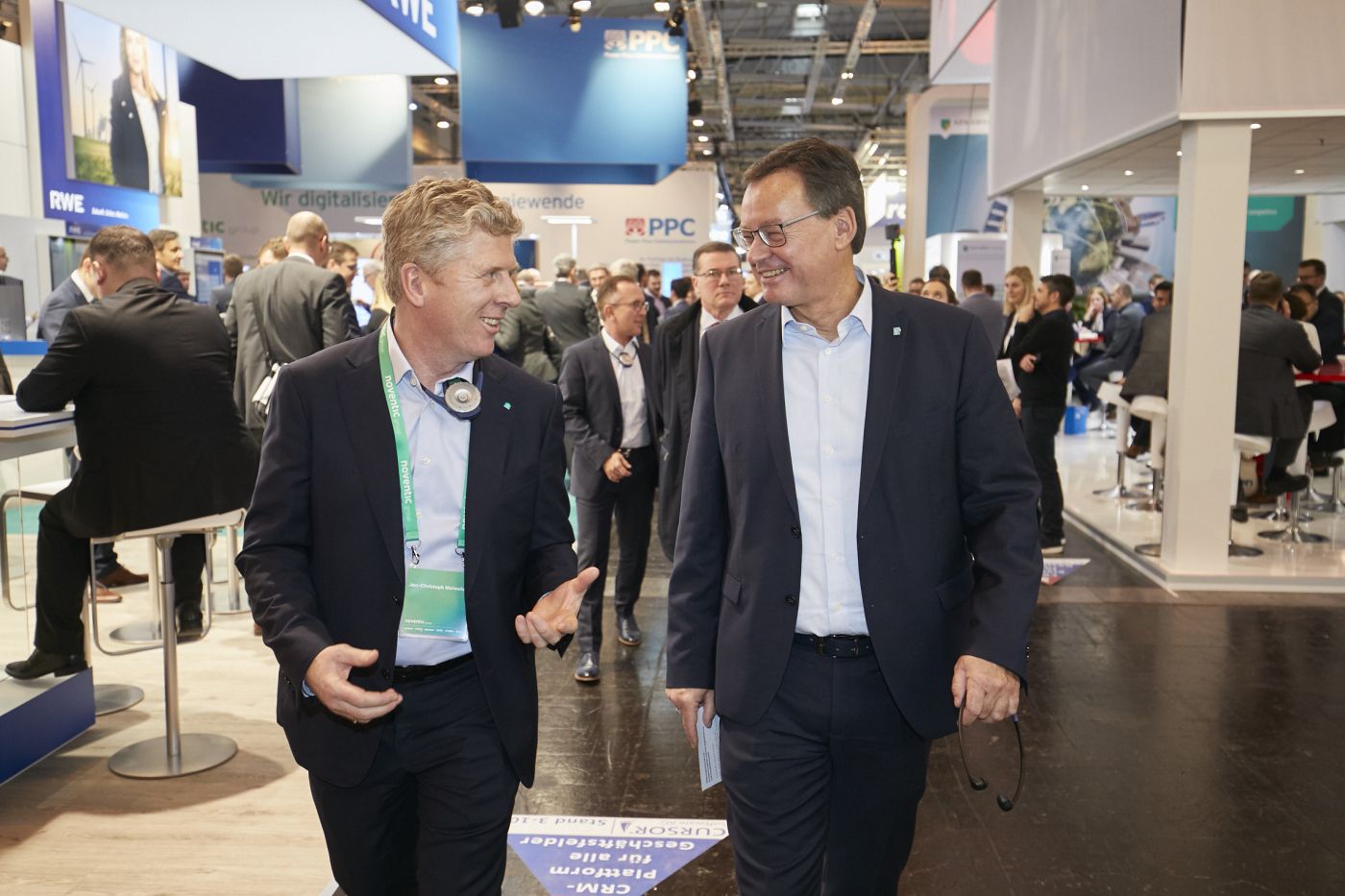
As digitisation unfolds, the energy industry and real estate sectors will continue to converge. The opportunities opened up by new technologies for companies operating in either of these segments were again underlined in Essen at this year’s E-world, the energy industry’s most important trade fair. The convergence of submetering and smart metering is just one example of this.
By Jan-Christoph Maiwaldt, CEO of the noventic group
Digitisation in the energy industry not only creates the conditions necessary for resource-efficient and therefore climate-protecting energy supply, it also revolutionises residential living. In my view Axel Gedaschko, President of the Federal Association of German Housing and Real Estate Enterprises (GdW Bundesverband deutscher Wohnungs- und Immobilienunternehmen e.V. (originally: Gesamtverband deutscher Wohnungsunternehmen) - GdW), the housing industry’s largest umbrella organisation, hit the nail on the head when he summarised as follows: “The digital revolution is the engine for the future of residential living in Germany.” I would like to add to that: and every bit as much for real estate management..
On a related theme, the recently published GdW study Wohntrends 2035 (Home Living Trends 2035) discussed the development prospects for the upcoming years: the impending roll-out of smart meter gateways opens up opportunities for not only the housing industry but also the energy industry to establish new business models and gain new cooperation partners. The oft-discussed smart meter roll-out brings metering closer to piecemeal submetering within buildings. For example, it gives portfolio holders the chance to participate, by making their own infrastructure investments, in the value added by building energy supply and beyond. The digitisation of the real estate sector will consequently become a driving force for smart neighbourhoods, towns and cities, and thus for the energy industry which supplies them. It will have to meet new requirements made of both societal integration and participation and of energy supply and mobility infrastructure. The foundations for this will be laid by networking with and among people, as well as the recording, evaluation and use of the collected (consumption) data.
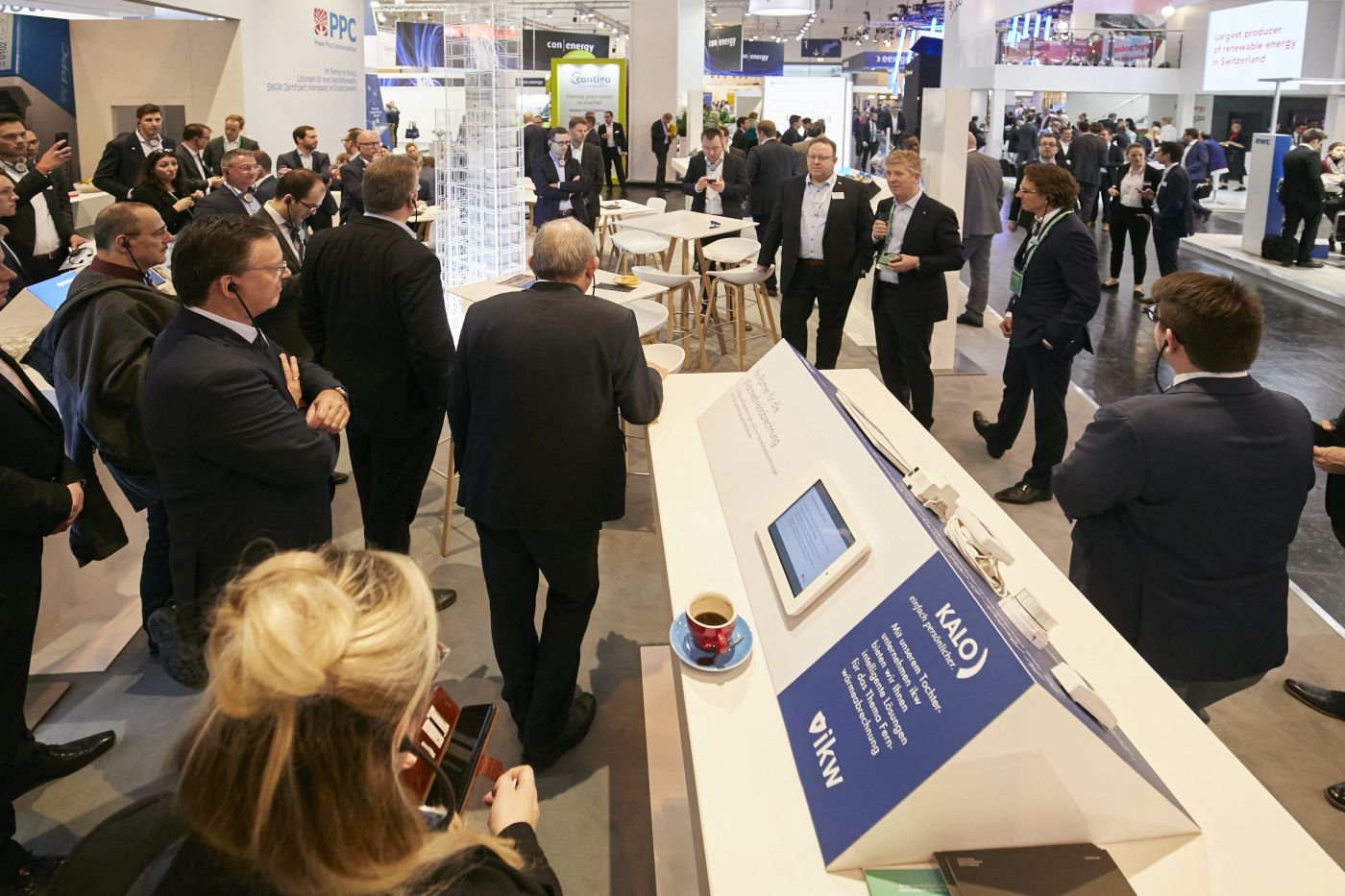
To find out what all this means in concrete terms, and how this convergence can be structured, at the E-world trade fair the noventic group brought together decision-makers, innovators and experts from both sectors. We invited Axel Gedaschko, together with some 20 housing industry representatives, on a tour of the trade fair with a view to exchanging views first hand with representatives of the energy industry.
The starting point for the tour was the joint stand for the noventic group, the noventic subsidiaries KALO and SMARVIS and the noventic affiliate Power Plus Communications AG (PPC). Ingo Schönberg, the CEO of PPC, presented the launch of digitalised real estate in the shape of the first BSI-certified smart meter gateway (SMGW). The SMGW builds a bridge between buildings and the Internet of Things, forming the linkage between efficiency targets and the desire for security and convenience. With an eye to the future, our guests discussed the opportunities arising for the housing industry from the SMGW as a highly secure communications hub: intelligent devices and applications can be cheaply connected with the Internet of Things over the controllable local systems (CLS) interface, while smart metering processes can be efficiently and cross-segmentally packaged. Thanks to open data platforms and standardised interfaces this gives rise to a CLS ecosystem in which highly sensitive data can be securely transmitted, also making it the optimum infrastructure for the use of intelligent services across sectors.
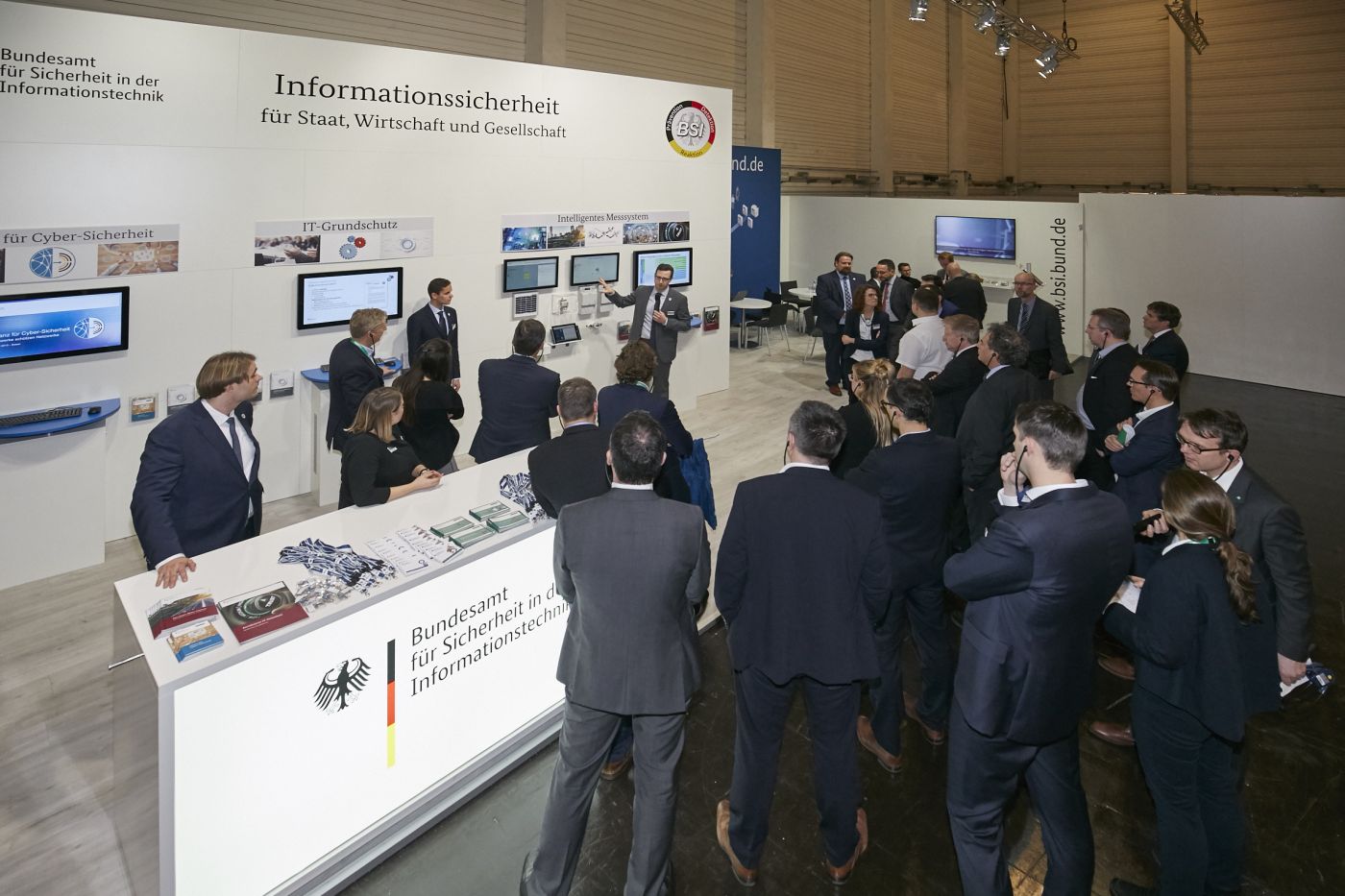
The tour led past some very varied ports of call. In Hall 4 – the focal point for start-ups and political institutions – experts from the Federal Office for Information Security (Bundesamt für Sicherheit in der Informationstechnik - BSI), explained the central security-related need for SMGW certification - and also why the road from this to the first certification has been so long. Susanne Schmelcher, Senior Expert Engineer at the German Energy Agency (dena) in the field of energy-efficient buildings, presented a discussion of future prospects for the energy transition in urban residential neighbourhoods, as well as the importance of structuring these transformative processes in close consultation with all stakeholders.
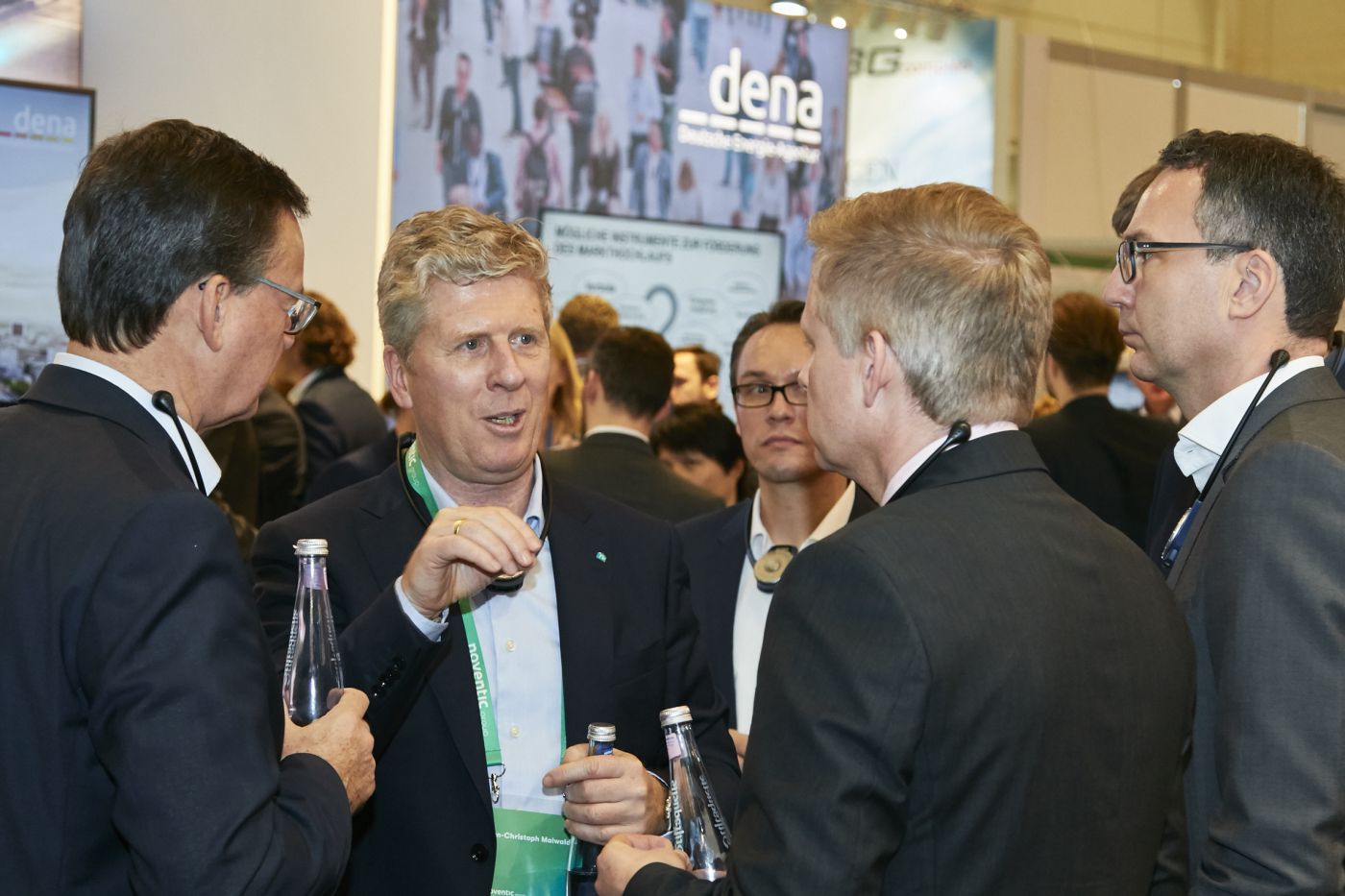
In Hall 3, where the major energy supply companies, municipal utilities associations, infrastructure and software providers all had their stands, we met Carl-Ernst Giesting, Senior Vice President of the Retail Executive Committee at the network operator and energy provider Innogy. The showcases and discussion points at this stopover were innovative concepts for residential neighbourhoods and e-mobility systems, as well as smart home applications in the context of housing industry professionals. What solutions are feasible, affordable and sensible in the context of housing associations?
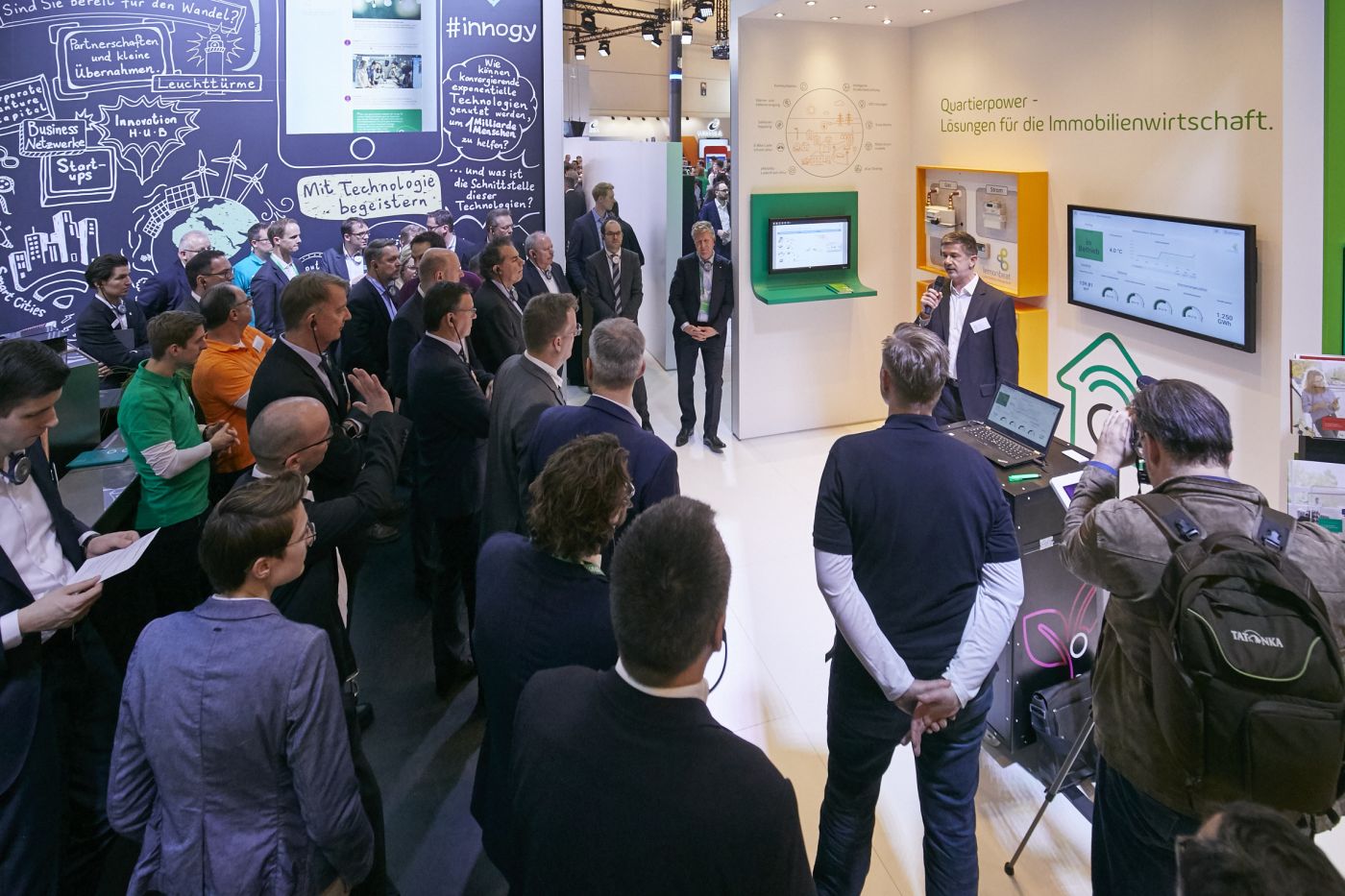
Paul-Vincent Abs, managing director of E.ON Metering, discussed the importance of intelligent metering systems as a key open-technology platform. He too stressed the importance of cross-segment metering systems for both the housing and the energy industry.
To conclude, Stephan Kiermeyer, director of the noventic subsidiary KALO and Frank Reschke, director of the noventic subsidiary SMARVIS, discussed the specific added value deriving from submetering offers as part of a cross-segment, intelligent metering network. Whether as a full-service or an enabler for self-billing, whether for housing associations or as a ‘white label’ solution for municipal providers, and with an eye on the upcoming changes to the regulatory framework, namely the Act on the Digitisation of the Energy Transition on the one hand, and the Energy Efficiency Directive (EED) on the other, they outlined possible solutions by reference to specific projects which have already been implemented. The KALO example related to the project in Rüsselsheim: where an SMGW installed by PPC provided the consumption data from the submetering and smart metering as a package involving various applications. For SMARVIS, Frank Reschke discussed a joint project with TEAG Thüringer Energie AG and PPC: at a Leipzig property, value adding applications were tested in practical use over the SMGW, with TEAG drawing for the purpose on SMARVIS self-billing expertise and infrastructure.
From an early stage, we at the noventic group set about shaping the open-technology and interoperable networking of buildings. E-world once again demonstrated that networking must also be addressed at cross-sectoral level. That is why we also, and increasingly, act as an expert platform linking the group’s companies with partners from a variety of sectors. At the trade fair we succeeded in bringing together top decision makers from the housing and energy industries, people committed to innovation, digitisation and solutions for the achievement of the climate targets, in order to learn from each other.